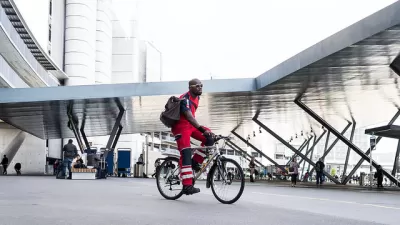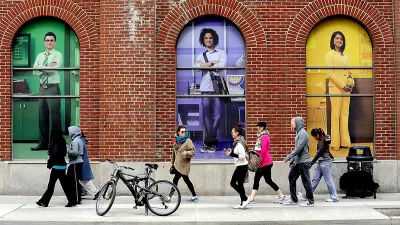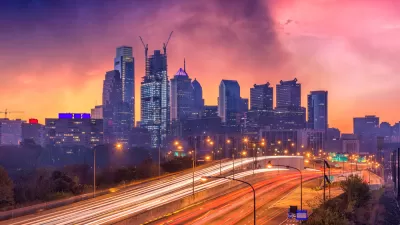Ninety percent of respondents to a recent survey overestimated the time it would take to walk or bike to work, and those with parking permits were the worst at guessing their commute times.

Pennsylvania State University conducted a study with 505 participants and asked them to estimate the time it would take them to walk or bike to work. 90 percent of respondents to a survey over-estimated how long it would take for them to walk or bike to work, according to an article by Gretchen Reynolds.
Drilling down into the data, the researchers found even more interesting insights. Those who did walk or bike were (not surprisingly) much more likely to guess accurately how long it would take them to walk, and those that had permitted work parking were most likely to overestimate the commute and to exaggerate that overestimation beyond their peers. Researchers suggest that if people knew how much time it actually took to get to work under their own power they might be more likely to opt to walk.
FULL STORY: Think Biking or Walking to Work Would Take Too Long? Think Again

Alabama: Trump Terminates Settlements for Black Communities Harmed By Raw Sewage
Trump deemed the landmark civil rights agreement “illegal DEI and environmental justice policy.”

Study: Maui’s Plan to Convert Vacation Rentals to Long-Term Housing Could Cause Nearly $1 Billion Economic Loss
The plan would reduce visitor accommodation by 25% resulting in 1,900 jobs lost.

Why Should We Subsidize Public Transportation?
Many public transit agencies face financial stress due to rising costs, declining fare revenue, and declining subsidies. Transit advocates must provide a strong business case for increasing public transit funding.

Wind Energy on the Rise Despite Federal Policy Reversal
The Trump administration is revoking federal support for renewable energy, but demand for new projects continues unabated.

Passengers Flock to Caltrain After Electrification
The new electric trains are running faster and more reliably, leading to strong ridership growth on the Bay Area rail system.

Texas Churches Rally Behind ‘Yes in God’s Back Yard’ Legislation
Religious leaders want the state to reduce zoning regulations to streamline leasing church-owned land to housing developers.
Urban Design for Planners 1: Software Tools
This six-course series explores essential urban design concepts using open source software and equips planners with the tools they need to participate fully in the urban design process.
Planning for Universal Design
Learn the tools for implementing Universal Design in planning regulations.
Caltrans
Smith Gee Studio
Institute for Housing and Urban Development Studies (IHS)
City of Grandview
Harvard GSD Executive Education
Toledo-Lucas County Plan Commissions
Salt Lake City
NYU Wagner Graduate School of Public Service




























